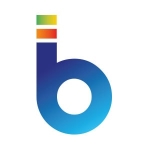What is our primary use case?
We are software developers. We generate data using the basic data connectors that Microsoft provides. We just follow the importing and exporting data around, the Azure platform.
We are doing C# development. We use an SQL server, and we use Power BI. Those are the main three technologies, and then it's just Microsoft to put it together.
We use this solution to create business intelligence reports for the executive users of our applications. We are creating standard business applications like ERP and CRM and e-commerce type applications. Then, we extract a sample of the data, build a simple data warehouse, in the Power BI service, and create some BI reports.
What is most valuable?
The data visualisation is very attractive from the user's point of view. Users see their reports and think "Wow - that is amazing".
However, it is much harder to prepare data for reporting. I would say 95% of your development time is spent gathering, cleaning, and modelling data. However once that is done reporting is easy.
What needs improvement?
The capacity needs improvement. It is limited in its capacity in power.
Some of its features are incredibly difficult to understand. There is a learning curve to do the more sophisticated things. For example, paginated reports are complicated. But in general, Power BI, it's not an end-user tool, however much Microsoft pretended it is. We just treat it is like another tool that we use and we deliver the reports to our clients.
The orchestration module for refreshing data flows is something that is missing and we have to do it manually. It should be one of the admin features of Microsoft BI.
For how long have I used the solution?
I have been working with Microsoft BI for 15 months.
We are using the latest version.
What do I think about the stability of the solution?
It is a reliable solution.
What do I think about the scalability of the solution?
I haven't tried to scale it, but in theory, I know that is capable. Power BI Premium is easy to scale as long as you have the money.
Inside the business, we only have one user, and outside the business, we have our clients where we have four developers who use this solution.
Our clients are medium-sized companies with 50 to 100 users.
How are customer service and technical support?
I have not contacted technical support. Google provides the information that we need.
How was the initial setup?
The initial setup is straightforward.
It can take a couple of hours to deploy the gateways, then there is the development of it.
It doesn't require maintenance, but we are forever enhancing the reports. In general, it works without problems.
What about the implementation team?
We are developers, we can complete the installation ourselves.
What's my experience with pricing, setup cost, and licensing?
We view it as an expensive product.
Most of our clients cannot afford the premium capacity.
We just make do with Power BI pro features, which is always a big shame because we know that the premium version has a lot of features that we would like to use, and are not available to us.
There are a few different licensing models.
It ends up being complicated and people don't like paying for things. It's okay if you're working for a large corporation because they can obviously spend thousands of pounds every month on licenses, but our customers cannot.
Licensing is paid on a monthly basis.
What other advice do I have?
Power BI has approximately 20 new features that come out every month. You just have to be patient and eventually, the features come out.
My advice to others would be to do your homework. It's one of those things where you have to get past the marketing. The marketing message is not helpful.
I would suggest that if you are going to use Power BI, you need to use developers who understand what it can do, what it can't do, and how it works.
Then they will then guide you to say, this is the type of report you can expect.
It took me a long time to realize what you can and cannot do with Power BI.
That's why I suggest doing your homework first. It's not as wonderful as Microsoft pretends it to be, but it's not bad, and I am not knocking it, but you have to cut out all the hype that comes with it.
I would rate Microsoft BI a nine out of ten.
Which deployment model are you using for this solution?
On-premises
Disclosure: My company has a business relationship with this vendor other than being a customer. Partner
















